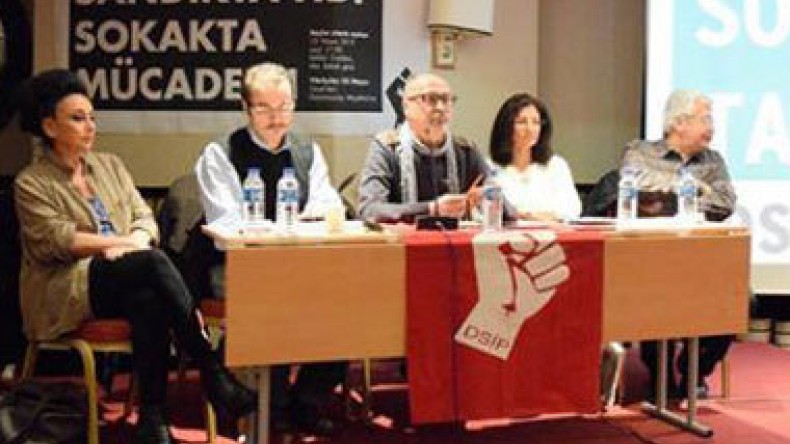
Today’s Zaman: Intellectuals, activists reveal history of deliberate ignorance of 1915 events
Intellectuals and activists gathered in İstanbul on Wednesday evening for an event called “Confront 1915,” where they peeled away the layers of history that have been presented by the Turkish government when discussing the shrouded massacre of Armenians in 1915, Today’s Zaman reports.
Dr. Ohannes Kılıçdağı, a professor of sociology at İstanbul Bilgi University and a columnist for the Armenian Agos weekly newspaper, discussed how Armenians who were deported and survived persecution were unable to return to their former homeland.
“[The period between] 1918-1920 was actually the time during which the genocide was most openly discussed in the history of this land, at a time when the Turkish Republic did not yet exist. After the Kemalist regime and as the Ankara government began to stabilize and become rooted, and wars were won … there was then a period of ‘clearing the air.' What I mean by this is that arrangements were made to prevent Armenians who were sent away from returning to their property and possessions,” shared Kılıçdağı.
The Republic of Turkey was established in 1923 after its founder, Mustafa Kemal Atatürk, and Turkish nationalists had emerged victorious over Greeks, Armenians and Western forces in the Turkish War of Independence. Today, despite international pressure, the Turkish Republic does not recognize the events that took place during the fall of the Ottoman Empire as genocide.
Kılıçdağı continued his discourse on the perception of history, explaining: “And then began a period that I call the ‘period of silence,' which slowly began to create the perception that nothing had happened here. Even more so, the perception that there were never Armenians here [in the first place] was formed,” adding, “A deliberate ignorance was spread and this was actually successful to a large extent.”
Kılıçdağı went on to share the results of a survey performed by Dr. Ferhat Kentel of İstanbul Şehir University. When participants of the survey were asked, “When do you believe Armenians came to Turkey?” One-third of the respondents said they believed that Armenians had come to Turkey after the fall of the Soviet Union, while another one-third acknowledged that they simply had no idea when the Armenians had come to Turkey.
“Therefore, we see that two-thirds of Turkish society believe that a people [Armenians] who were the first people of this land to be written down in history, who existed here before the Common Era, are commonly believed to have only arrived at the beginning of the 1990s,” he concluded.
Another speaker at Wednesday's meeting was prominent human rights lawyer Eren Keskin, who addressed the audience, saying, “We are very late to be speaking about this issue.”
In line with Kılıçdağı's argument that such ignorance was enforced deliberately by the government, Keskin noted, “I think the Turkish government has been very successful in its mission to cover up these events.”
She told a personal story of her first encounter with the tragic past of the Armenians in Turkey in which she explained how her grandfather had demanded that her aunt Josephine, an Armenian, convert to Islam before marrying his son, which she did.
Keskin believes that the example she shared highlights the ongoing injustice and how the experience in her family, which was discussed but went undisputed, gave her the opportunity to learn about discrimination against Armenians from a young age. She then went on to describe her career as a human rights lawyer with the İstanbul branch of the Human Rights Association (İHD). She noted that although she believed it to be quite late, the İHD released a press statement in 2005 recognizing the events of 1915 as genocide. After the İHD took this stance, Keskin said they were condemned and their office building attacked.
Newsfeed
Videos






























